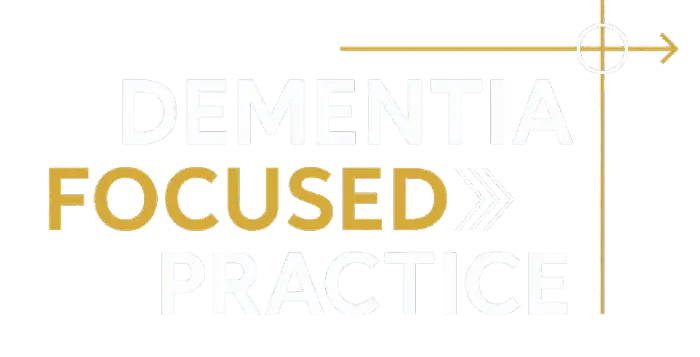Bridgewater Alzheimer’s and Dementia Planning Lawyer

A dementia or Alzheimer’s diagnosis can have long-term consequences for you and your family. When you or a loved one receives such a diagnosis, you may want to plan for the future to avoid legal and financial issues.
However, it can be challenging to determine the best steps to take or how to avoid potential difficulties. Fortunately, an experienced Bridgewater dementia planning attorney can assist you with this process.
The legal team at Van Dyck Law Group handles elder law and estate planning cases, and we’re here to answer your questions about dementia and other dementia-related legal issues.
How Does a Bridgewater Dementia Planning Attorney Help You Plan for the Future?
During your consultation, we’ll discuss your concerns, answer your questions, and inquire about your objectives. Then, we’ll recommend the best legal solutions to achieve your goals.
Here are a few examples of the ways we might assist you with your estate planning needs:
- Draft customized legal documents that reflect your or your loved one’s medical situation and long-term goals, such as durable powers of attorney, living wills, and various types of trusts. Through these documents, you can express your wishes for medical and end-of-life care, plan for emergencies, and protect assets for future generations.
- Safeguard family wealth while planning for the financial demands of long-term care through proactive Medicaid strategies. Paying for long-term care is one of the most common concerns among our clients, and with good reason. Nursing home care averages around $6,844 per month, and in some cases, it could be even more expensive. Your attorney will help you understand Medicaid eligibility and review other options for funding this necessary care.
- Clarify who has the legal authority to make decisions, reducing the risk of disputes or the need for court intervention down the road. For instance, if you sign power of attorney documents now, your family members won’t need to go to court to seek a guardianship or conservatorship later.
Is a Bridgewater Alzheimer’s Planning Lawyer Really Necessary?
We understand why people ask this question. You and your family may be facing high costs for medical care, so it’s natural that you’d want to save money.
However, forgoing solid legal advice is not the best solution. A dementia legal planning expert can help you reduce costs, apply for assistance programs, and, in some cases, protect assets for family members or heirs.
Planning for the future without legal advice often leads to costly mistakes, such as incurring Medicaid penalties or court costs. Your dementia planning lawyer will work to help you avoid these expensive errors and save you as much time and money as possible.
How Does a Dementia Alzheimer’s Planning Lawyer Help With Medicaid and Long-Term Care Planning?
Yes. Long-term care costs can be a major concern for families after a memory loss diagnosis. Even though many patients remain at home, assistance in the form of in-home care often becomes necessary as the disease advances.
While less expensive than a nursing home facility, this option still carries high care costs.
In some cases, family members try to provide care at home, but this plan comes with its own financial implications. When a relative needs 24/7 supervision, another family member may have to quit their job to provide care.
Unfortunately, not every family can afford to lose an income, so this isn’t always an option—but paying for care may not be feasible, either.
When families struggle to afford long-term care, they may turn to Medicaid for assistance. If you or your relative is eligible, Medicaid will cover the full cost of nursing home care.
This coverage typically includes medications, therapies, and other treatments administered within the facility. That said, there are some limitations.
Medicaid recipients are generally restricted to facilities that accept Medicaid. If your preferred nursing home or assisted living facility doesn’t participate in the program, you may need to explore other ways to pay for care.
However, the biggest obstacle for most memory loss patients is meeting Medicaid’s eligibility requirements.
Are You Eligible for Medicaid?
First, you should know that if you’re not eligible now, you might become eligible in the future. If you or a family member has been turned down for Medicaid coverage due to ineligibility, but you still need help paying for care, ask a Bridgewater dementia planning lawyer to review your case.
We can identify the potential issues and recommend options to meet the requirements.
In New Jersey, the Medicaid program is administered through NJ FamilyCare. To qualify, applicants must fall within specific income limits, which are periodically adjusted.
As of 2025, people between 19 and 64 years old may be eligible if their income does not exceed 138% of the Federal Poverty Level (FPL). For seniors over 65 or individuals who meet specific disability criteria, a separate program such as NJ FamilyCare Aged, Blind, and Disabled may apply.
In addition to income restrictions, applicants must also meet asset requirements. This typically involves using non-exempt assets to pay for care until you meet the financial criteria, a process commonly referred to as spending down.
What Assets Are Counted for Medicaid Eligibility?
Medicaid considers the total value of countable assets when determining eligibility. These typically include items such as cash, investment accounts, stocks, bonds, and savings and checking accounts.
Any real estate not used as a primary residence is also countable. In New Jersey, retirement accounts, such as IRAs and 401(k)s, are also considered countable assets.
However, certain resources are classified as exempt, meaning they do not affect eligibility. These non-countable assets generally include personal items, home furnishings, one vehicle, irrevocable funeral trusts, and, in most cases, the applicant’s main residence.
Almost all income is considered countable, with only a few exceptions. If you are a veteran who receives an Aid and Attendance allowance, this is not counted.
Some applicants may still be eligible for Medicaid under the state’s Medically Needy Program, also known as the Special Medicaid Program, Medically Needy Segment. It’s intended for individuals applying for Regular Medicaid or the Aged, Blind, and Disabled program who have income exceeding the standard Medicaid limit.
Through this program, applicants can qualify for Medicaid by reducing their excess income through out-of-pocket medical expenses and health insurance premium payments.
Bridgewater Alzheimer’s and Dementia Planning FAQ
How Does Your Spouse’s Income Affect Your Medicaid Eligibility?
When a married couple applies for Medicaid, all of their assets are treated as jointly owned, no matter which spouse is applying for long-term care coverage. To help prevent financial hardship for the spouse who remains in the community, Medicaid includes a Spousal Impoverishment Provision.
This rule allows the non-applicant spouse—often referred to as the community spouse—to retain a portion of the couple’s assets through the Community Spouse Resource Allowance (CSRA).
For 2025, the community spouse is permitted to retain up to 50% of the couple’s total assets, with a maximum cap of $157,920. If their share amounts to less than $31,584, the spouse may keep the full amount of the couple’s assets, up to that $31,584 minimum.
Do You Have to Spend Down All Assets to Become Medicaid Eligible?
Not necessarily. In some cases, your lawyer may be able to move non-exempt assets into a trust to protect them. There are also a few limited situations where you may be able to transfer property to a family member.
However, these steps must be done very carefully to avoid violating Medicaid rules. Medicaid will review your transactions for the past five years, also known as a five-year “look-back” period.
If you gift property or sell it below market value during this time, you will likely incur Medicaid penalties, which will push back your eligibility date. This is why we do not recommend making any asset transfers without first consulting an Alzheimer’s planning lawyer.
What Happens if Someone Has Dementia and No Power of Attorney?
If the person still has the ability to understand the situation and make decisions, they can and should speak with a lawyer about creating a durable power of attorney. Through this document, the grantor authorizes another person to make decisions on their behalf when they’re unable to do so.
The grantor can select one person or agent to make both medical and financial decisions, or two separate individuals for each of these tasks.
If the person is now incapacitated or unable to make their own decisions, the court can appoint a guardian or conservator. Often, this process begins when a family member petitions the court for guardianship, allowing them to make decisions about their relative’s care. Your dementia planning lawyer can provide further details about the process.
Learn More From a Bridgewater Alzheimer’s Planning Attorney – Contact Us Today!
If you or someone close to you needs guidance on dementia legal planning or help navigating estate planning matters, Van Dyck Law Group is here to assist. Our experienced New Jersey attorneys can walk you through your choices, answer any questions, and draft legal documents tailored to your needs and wishes.
We recognize how challenging your diagnosis can be, and we’re dedicated to offering compassionate, knowledgeable support throughout the entire process. Contact us at (609) 293-2621 or to schedule a consultation and learn more.


